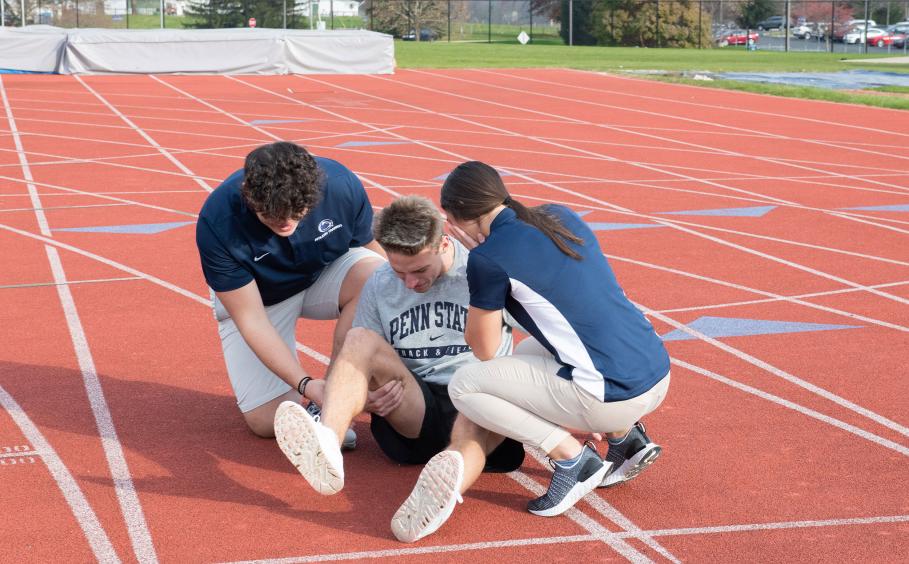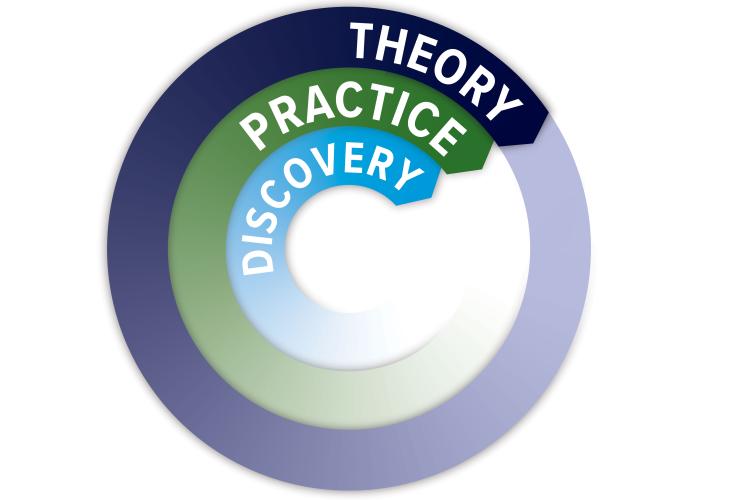Program Overview

Penn State’s Master of Athletic Training (MAT) degree delivers a person-centered curriculum designed to provide learners with cutting-edge knowledge and skills necessary to excel as a versatile health care provider in diverse practice settings.
Program Description
Through an integrative framework that promotes evidence-informed decision-making, inter-professional collaboration, and cultural competence, students develop attitudes and habits that cultivate career enrichment and meaningful lifelong learning. As an accredited program, educational experiences are structured to prepare candidates to successfully achieve standards set forth by the national Board of Certification and related state regulatory agencies required to practice as an athletic trainer.
What is Athletic Training?
Athletic training encompasses the prevention, examination, diagnosis, treatment, and rehabilitation of emergent, acute, or chronic injuries and medical conditions. Athletic training is recognized by the American Medical Association (AMA), Health Resources Services Administration (HRSA), and the Department of Health and Human Services (HHS) as an allied health care profession.
Who are Athletic Trainers?
Athletic trainers (ATs) are highly qualified, multi-skilled health care professionals who render service or treatment, under the direction of or in collaboration with a physician, in accordance with their education, training, and the state's statutes, rules, and regulations. As a part of the health care team, services provided by athletic trainers include primary care, injury and illness prevention, wellness promotion and education, emergent care, examination and clinical diagnosis, therapeutic intervention, and rehabilitation of injuries and medical conditions.

Program Framework
The program achieves its objectives by a curricular framework that nurtures knowledge, skills, attitudes, and habits to support integrative person-centered care through health solutions at the nexus of theory, practice, and discovery.
Students progress through this framework via three key interactive stages, which function to provide high-impact learning experiences necessary to develop contemporary competence of the modern field.
Stage 1: Theory
Introduction to core concepts that underpin the premise and application of health care practices, as well as interventions for human performance restoration or optimization. A problem-based learning approach utilizing inquiry groups cultivates an appreciation for the interdisciplinary nature of life sciences and health systems. The depth and complexity of content exposure advances over time in a manner to progress knowledge acquisition and promote lifelong learning.
Stage 2: Practice
Series of clerkships providing direct patient/client experiences under the supervision of health care providers. Encounters are structured to help bridge theory and practice with a focus on patient/client-centered outcomes and promoting health-related quality of life across the lifespan. Sequences are modeled to foster competence through interactions with patients/clients of diverse backgrounds in various inter-professional practice settings.
Stage 3: Discovery
Translating health science to clinical practice and the athletic training profession. Completion of an experiential project integrates knowledge, skills, and attitude developed through coursework and clinical education experiences to master a specific individual or population health matter. This stage is designed to enhance competency-directed progression via structured autonomy that facilitates professional identify formation and transition to practice.
